Welcome to a new year with Searching for Shalom. I am so honoured that you chose to be here! Thank you for all your support throughout 2024. I am excited about the many topics I want to explore throughout this next year, including many stories from my own life, guest posts, and more food/motherhood-based content. You might even get some fiction!
If you haven’t already I invite you to consider subscribing to this publication in order to support me and receive my posts directly. If you are able, you can also support my writing endeavours financially by being a paid subscriber or leaving a tip!
I just finished listening to an audiobook called Hannah’s Children: The Women Quietly Defying the Birth Dearth by Catherine Ruth Pakaluk. The description, which I copied from her website, goes as follows:
“The social scientist Catherine Ruth Pakaluk, herself the mother of eight, traveled across the United States and interviewed fifty-five college-educated women who were raising five or more children. Through open-ended questions, she sought to understand who these women are, why and when they chose to have a large family, and what this choice means for them, their families, and the nation.”
It’s a fascinating view of women who have chosen many children, despite the mainstream culture’s ever-lessening birth rate. I personally found the book encouraging and insightful — a true celebration of motherhood and the gift that life can be.
If you would like more of an in-depth overview, this interview with the author is excellent: Maiden, Mother, Matriarch podcast
There are many things I could unpack from the book, but I was particularly touched by one of the last chapters, which tells the stories of a few different families. It focuses on how giving your children siblings is a gift to them. The stories highlight how having siblings encourages responsibility, decreases entitlement and helps children realize that their lives are not about them.
It also explored a few stories of teenagers, young children and parents who had significant mental health struggles. These people’s lives were deeply impacted for the good by the arrival of a new child in their lives.
I cried as I listened to these stories because I could relate deeply to them, even though I had never reflected on that experience in my own life.
As a teenager struggling with my mental health—anxiety and bulimia—my younger siblings provided me with purpose and helped me get out of my head. Today, I’m going to tell you a bit of that tale.
When I reflect on my childhood, I often ask myself: were my growing-up years actually unusual, or does everyone just think that their childhood was unique? The truth resides between the two, but many parts of my experience stray far away from the status quo of family life in North America.
I am the second eldest of eight children, three girls and five boys. Yes, I have five younger brothers, which has helped me a lot in my expectations of being a boy mom twice over now. Mom homeschooled us all, with the exception of a few slight dalliances into private schools. A significant portion of my older childhood and teen years were spent in northern rural British Columbia, living on a lake in a community that can only be described as redneck. In order to get to this community from the nearest town, affectionately known as the “Southside,” one had to take a twenty-minute ferry across a large lake.
I was also raised fervently Catholic, with an emphasis on the charismatic side of things. My parents would often joke that we were “evangelical Catholics.” This part of my childhood, although not entirely unique, was very interesting since my Dad worked as the Catholic version of a pastor/travelling revivalist. His work involved positions of leadership at various Catholic bible schools, doing public speaking events at parishes and conferences and writing for faith-based publications. Once, he was asked to preach at a local First Mennonite Church which at the time did not have a resident pastor. He was subsequently asked if he wanted to be their pastor— which he politely refused. So for all intents and purposes, I had the upbringing of a pastor’s kid without actually being a pastor’s kid, including frequent re-location and the pressure of living up to a certain standard, which I internalized in some negative ways.
All of this gives you just a bit of background on my childhood, leading up to my struggles with mental health. I was about eleven when my eating disorder began. Even though I was not aware of it at the time, this struggle was fueled by deep-seated anxiety about who I was as a person. As so many of those with eating disorders say, it wasn’t really about the food. It was about control, being good enough and desperately trying to maintain an image of oneself that was deemed to be lovable.
So where do the siblings come in?
I was eleven and already struggling with body image and food when my second youngest brother was born. It is well known in my family that I quickly adopted little “C” as my boy. I would take him for long periods of time, have him lying next to me as I did school work, or walk around outside with him as he grew into a toddler. This sweet little boy breathed life into me, and I experienced so much joy from being his older sister. He gave me a tangible way to get out of my head. So much of my struggle with mental health involved feeling unlovable as I was and a desperate need to be secretive. Having a baby and then a toddler around prevented me from completely isolating myself. As I’ve experienced again with having my children, there is power in the unconditional love and devotion of a little one. They are not focused on your imperfections even as you might be — they simply love you and want to be with you, just as you are.
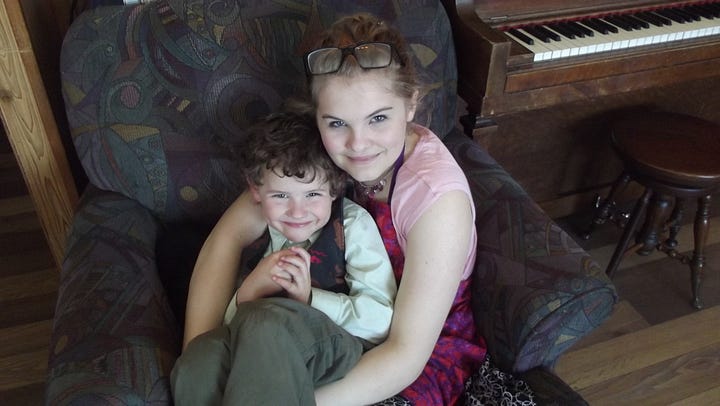
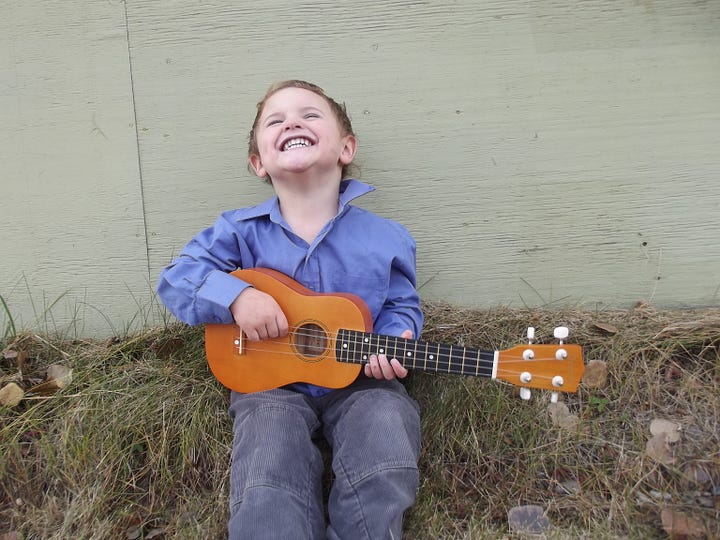
Flash-forward a few years to when I was seventeen. At this point, I had graduated high school and my family was living in the city of Prince George. I often think of this year as my rock bottom. I was working a job that I truly hated, was deep in the throes of the worst part of my eating disorder and blocked out many friends and family members.
However, even on the worst days, there was a little person around who would not take no for an answer. At the time, my youngest brother was three years old. I had a bedroom in the furthest corner of the basement in our house, and every day, inevitably, I would hear a little knock on the door. He would come in and want to snuggle or ask me to take him to the park, to get ice cream or jump on the trampoline. He had no idea at the time and still does not know what I was going through. To him, I was simply his big sister that he wanted to hang out with. I spent many hours curled up in my bed watching “Grey’s Anatomy” with him (sorry Mom), or out and about in the neighborhood.
Although my little brothers did not “save” me from my mental health struggles, I do believe that they helped keep things from getting a lot worse.
And there is more that these chapters from Hannah’s Children brought up, beyond just the impact of babies and toddlers on the mental health of their siblings. As I look back, I can clearly see how each of my seven siblings had a positive impact on my mental health at one time or another.
My older sister lent her ear as I processed and healed during my early adulthood. My younger sister, with her spontaneous and joyful personality, got me to live a little more in the darker days of Covid. The brother following me in age was the first sibling I told about my eating disorder when we were angsty teenagers. Brothers two and three were always inviting me to play and still to this day remind me that I was the “fun” babysitter — despite the fact that I would create contests involving them eating a bowl of mayo!
Anyone who has a lot of siblings will tell you that it can be complicated to maintain close relationships with that many people. And of course, some difficulties arose from being one of eight children. But if Hannah’s Children convicted me of anything, it is that children and having close family relationships are often the things that keep us afloat during difficult times. It is so easy to look back at our childhood and only see the negative parts of it; maybe the trauma, dysfunctional family patterns or people that hurt us. Those exist for all of us. But how often do we look back on how each person in our family helped us in some way? Personally, I have never thanked my parents for their openness to life which gave me the gift of siblings.
So I am going to today: Thank you Mom and Dad. You probably didn’t fully know what you were getting into, having eight of us, but each life you said yes to has changed me for the better.
Things I’ve loved these past days:
Loré Pemberton’s art. I just got her 2025 calendar, and I’ve never been so excited to put art on my wall.
Greta Gerwig’s Little Women. Love, love, love. Here’s my Letterboxd review:
I made so many of these Sourdough Shortbread Cookies for the holidays and they are so, so good. Not too sweet, they are perfect with hot chocolate!
I pray you have a peaceful week,
Hannah Chartier




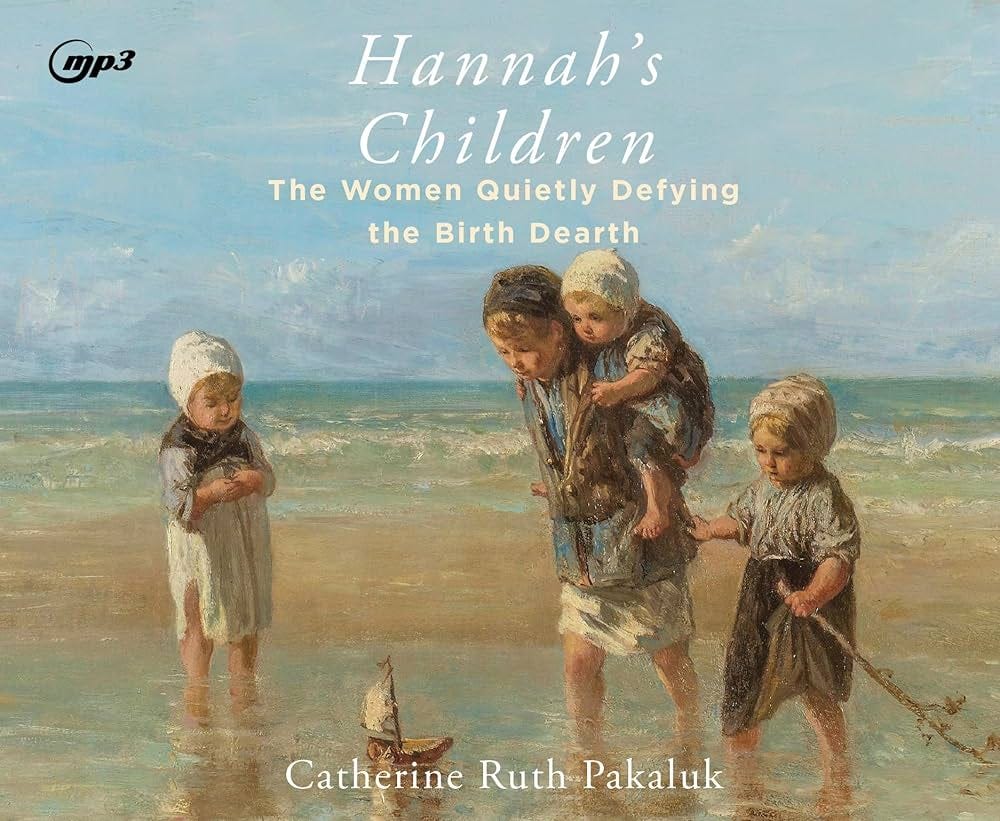
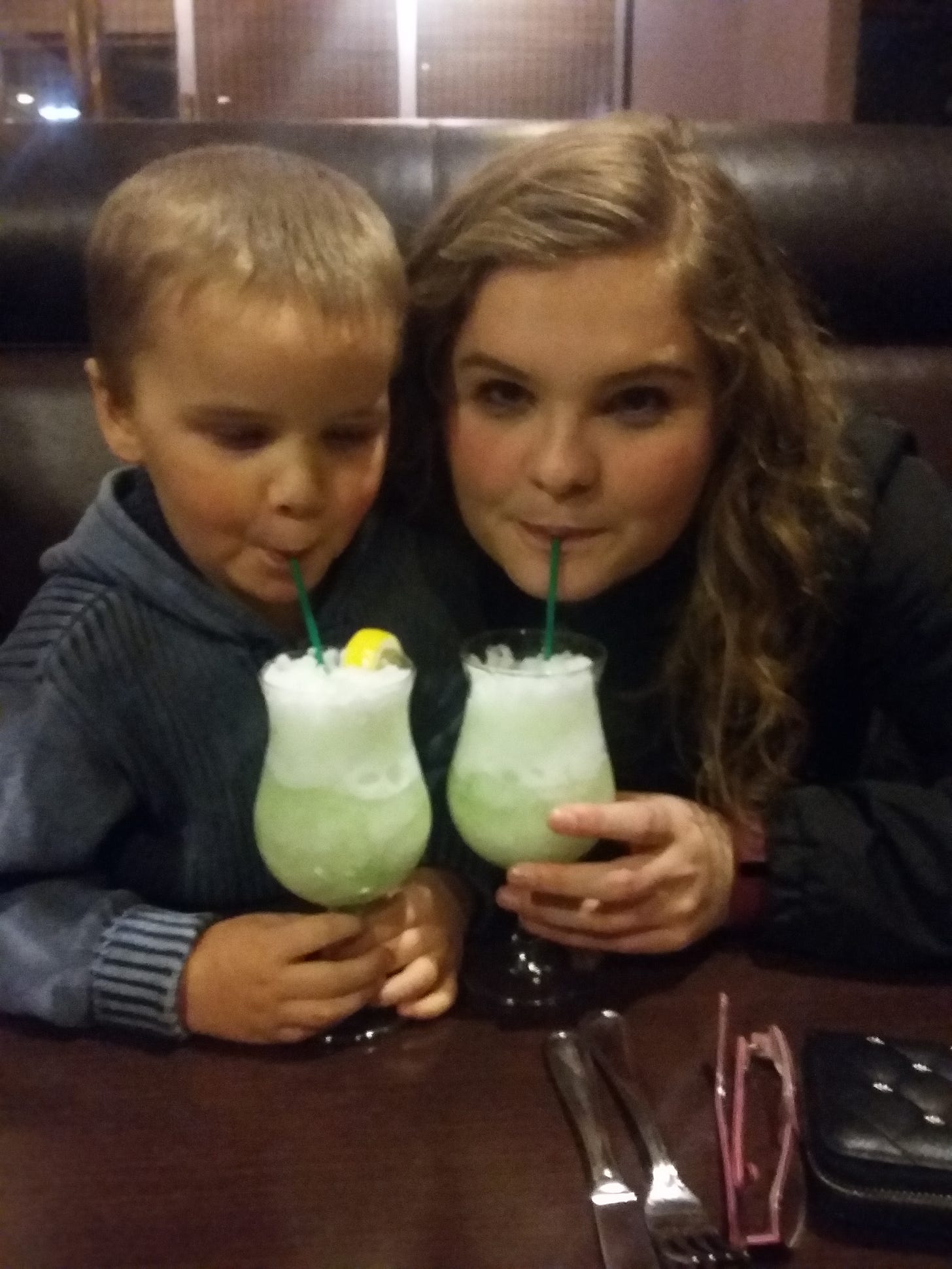
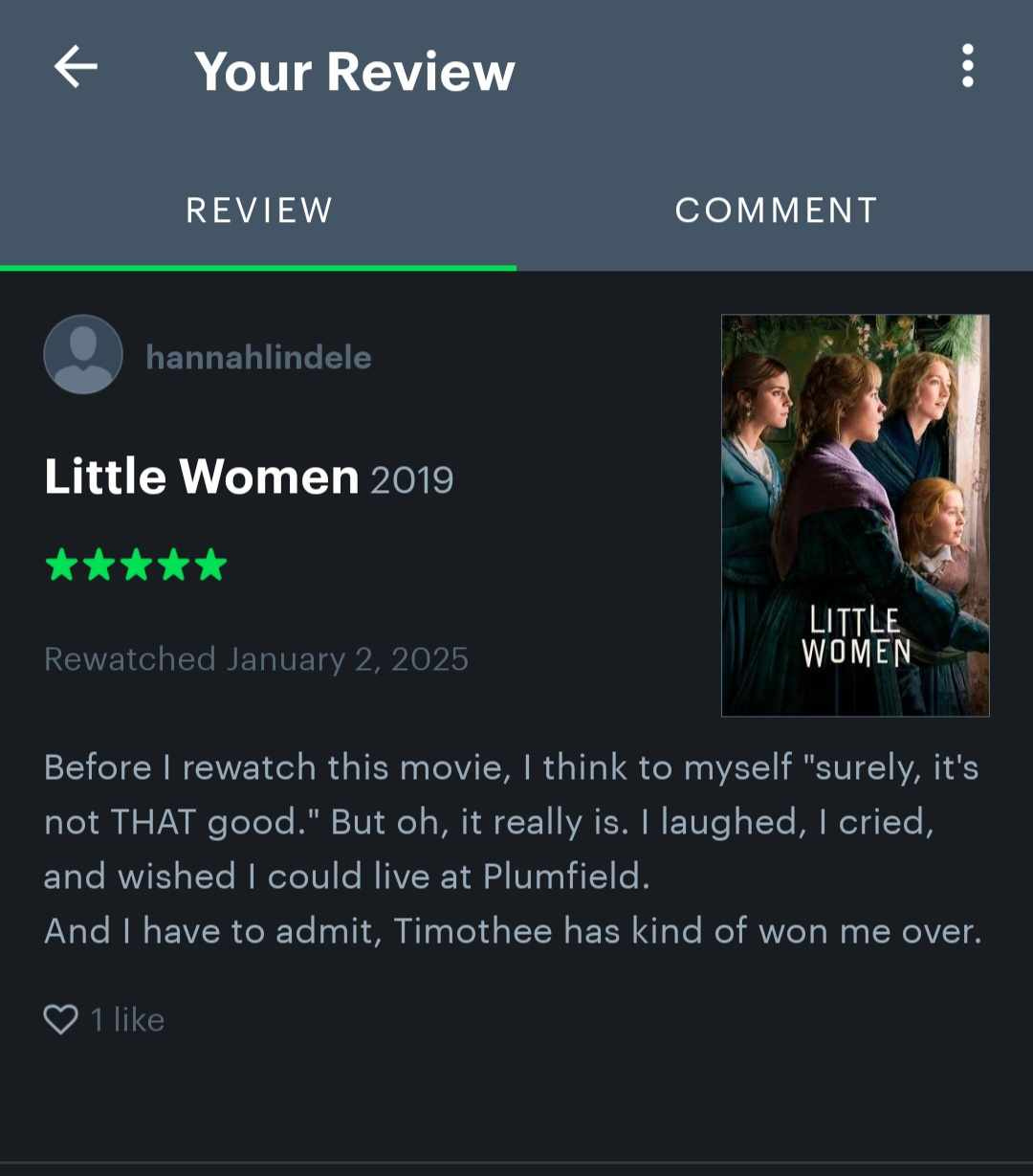
My Dear Hannah, you are right that we didn’t know what we were getting into! Each child brought a new joy and an adventure. I am so grateful for every one of my 8 children! With God’s grace and loving Christian fellowship, we are still navigating the ups and downs of marriage and family life. I honor you for sharing your story and may it be an encouragement to others.💛
Amazing how we can help people unknowingly! I’m glad you were blessed by our presence :). What else are we hear for? “No one is useless who lightens the burden of another.”
Also, if I could put a bug in your ear, some short stories and about Connelly family life would be exquisite 🤌